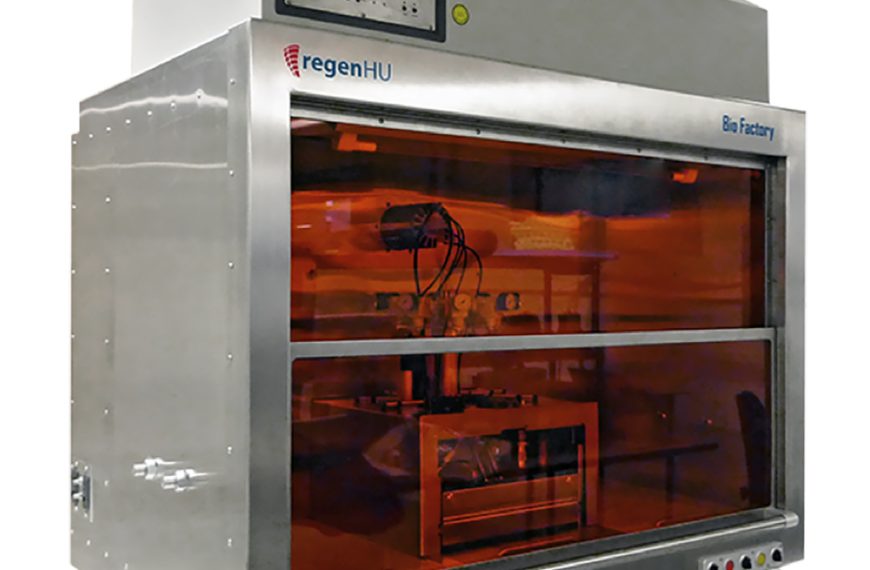Description
The 3D Discovery Evolution instruments are capable of printing cells, gels, melt extruded polymers and melt electrospun polymers.
State-of-the-art bio additive manufacturing systems that addresses the major current barriers for multi-material printing at multiple scale levels. These high performance bioprinters enclosed in a Class II biosafety cabinet, for generation of cell-seeded sterile constructs, and have a unique modularity and flexibility for research and development.
Thea versatile and cell friendly three-dimensional manufacturing instrument allowing scientists to pattern cells, bio-molecules and a range of soft and rigid materials in desirable 3D composite structures, mimicking natural environments.
Uses / Applications
Tissue-like models
Composite Biomimetic structures, e.g. Osteo-chondral models
Cell-therapy models for cytotoxicity/toxicology studies
Cancer models

Specification
UV365-pen 365nm for printing UV curable gels
Melt Electrospinning Writing (MESW)
Voltage: 0-25kV
Nozzle / Needle diameter: 100 μm up to 300 μm
Heater: 100°C
Thermo polymer extruder based on PED technique (HM-300H)
Viscosity range: Screw design dependent
Nozzle / Needle diameter: 120μm up to 800μm
Heater: Up to 240°C.
Cell Friendly Micro Printhead (CF-300H)
Viscosity range: 110 – 1000m Pa.s
Nozzle / Needle diameter: 150μm, 300μm
Heater: Up to 80°C
Dispensing mode: Jetting / Needle dispensing



